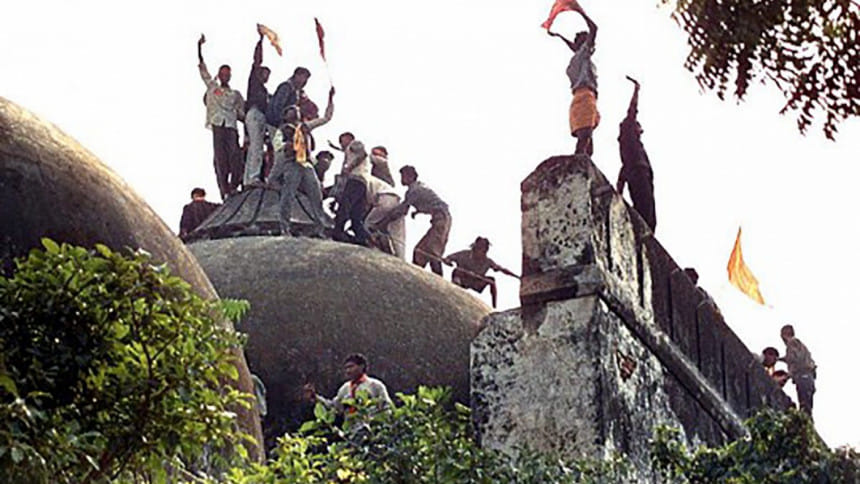The Babri Masjid verdict

The Indian Supreme Court has delivered its verdict on the long-standing dispute centring around the Babri Masjid in Ayodhya, Uttar Pradesh, India. The court has awarded the disputed site to the Hindus, and ordered a separate piece of land be given to the Muslims to construct another mosque. Predictably, the judgement has not satisfied all the Muslims. The All India Muslim Personal Law Board (AIMPL) has rejected the decision, expressing its intention of submitting a review petition, whereas the Muslim Waqf Board has accepted the decision with a caveat that it will do the same as AIMPL by appealing against the award. The Congress, on its part, has accepted the ruling.
A positive feature in this matter is that the aggrieved parties have all, without exception, called for calm, preferring the legal path to any other means. We believe that this is the rational way of addressing an issue which has been the cause of age-old friction between the two communities in India with the potential of perpetuating the friction unless the verdict is handled in a sensible and judicious manner. We also believe that violence has to be averted at all costs, as called for by all the parties including the Congress.
Without going into the merits of the cause or the arguments validating the decision, we would like to state that a mosque here or a temple there does not necessarily enhance the status of—nor denigrate—any particular religion. The location of a place of worship should in no way detract from the fundamental messages of the two major religions of the world—one that is being followed by more than a billion people all over the world, and another that has been in existence as a creed for the last 5,000 years. That would neither make nor break the core values of the religions, both of which espouse the cause of universal brotherhood and peace.
In this context, we would like to call upon the Bangladesh government to exercise careful vigil so that the situation cannot be exploited by the trouble-mongers. The unfortunate developments that followed in the wake of the December 1992 demolition of Babri Masjid should never be allowed to be repeated.

 For all latest news, follow The Daily Star's Google News channel.
For all latest news, follow The Daily Star's Google News channel. 




Comments